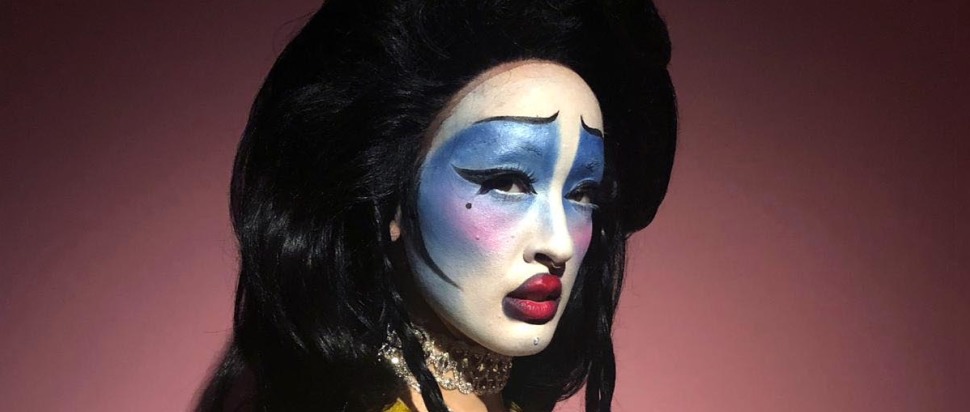Jian Yi on new performance festival Journey to the East
Artist and director Jian Yi tells The Skinny about Glasgow's newest performance art and contemporary dance festival, Journey to the East
“It’s been a difficult period and a transformative time,” ponders performance artist and artistic director, Jian Yi. “The last year or so has been a period of reflection, a time to slow down and reassess where we are as a society, as individuals, as artists… It feels like, now, we’re ready to start being creative and connect with each other again.”
Yi’s desire to connect – with audiences and artists – will manifest as a new performance art and contemporary dance festival, Journey to the East, coming to a trio of venues across Glasgow at the end of August. International artists, such as Singapore-based choreographer Daniel Kok, Chinese avant-garde artist Yingmei Duan and Indonesian performance group, Breathing Forest Dance Theatre, will perform new and established works through live performances and film screenings. Journey to the East will also mark Glasgow’s first performance festival in over a year, as well as Yi’s first major curatorial project.
“I’ve always been interested in artist-led organising,” explains Yi about why they decided to take the plunge into festival programming and curating. “Especially for queer artists of colour, being able to make events with other artists and create new opportunities, spaces and contexts for performance art is so important as a way for us to take back the means of production of our own work.”
Collectivism is at the heart of Journey to the East, practically as well as thematically. “We’re bringing back the idea of collective experiences and ritual in order to make art central again to society, rather than just as a commodity or something to be consumed,” explains Yi. “In Journey to the East, eastern mysticism is the basis for exploring these themes of art and social intervention. Throughout history, artists have always gathered together to create movements. That’s a bit lost today with our very institutionally based culture. We’re wanting to refind that direct relationship between artists and audiences.”
Yi hopes that Journey to the East will open up a space for exploring spiritual and transformative artistic practice outside of capitalist institutions. Performance art is at the centre of the festival as the artform itself tends to be found on the margins of commercial theatre and dance. “We’re interested in carving out a space outside of normative practices and exploring the idea of internal wildernesses in both ourselves and society,” says Yi. “The festival is about opening up a space for embodied transformation as queer artists of colour and artists with marginalised identities.”
Contemporary dance is typically geared towards a Euro-centric gaze and so, by programming artists with backgrounds in eastern performance practice and dance, Journey to the East seeks to shift that gaze. As Yi explains, “On the basis of pure racism and exclusion we don’t often include these creative practices or traditions in our museums and performing arts festivals. This project wants to reclaim these 'other' practices.”
But Journey to the East also aims to deconstruct binary logic – the idea of east and west, self and other, mind and body, male and female as polar opposites – by taking the audience into the liminal spaces between these notions. “Perhaps this comes from my background as an Asian person who grew up in Australia,” says Yi. “But I experienced the hybridity of growing up as second or third generation and being between cultures. Binary logic works by claiming that one side is rational and the other side is irrational. With Journey to the East, we’re interested in deconstructing this logic about gender, selves and geography.”
Journey to the East is therefore as much a spiritual journey as a geographical one. “There’s a western way of viewing art in which we can forget about interior space,” says Yi. “With the festival, we’re interested in finding that space in performance art. A lot of non-western approaches to dance, like my practice of Japanese butoh, is about connecting to an internal self, ritual and collective practice. For us, the 'east' is not just a geographical or historical description but also as a journey to a true self.”
After a trying year, Journey to the East hopes to rebuild connections between audiences and artists. In the light of Black Lives Matter and Stop Asian Hate, queer people of colour occupying physical, creative spaces on their own terms feels truly artistically radical. “As artists, activists and organisers, a lot of us have been doing this kind of work for a long time, not just since these recent movements happened, but now it does feel like it's come to a head,” says Yi. “Rather than go through the handful of white gatekeepers who decide what contemporary culture looks like, we, the artists, get to share directly with audiences, create a sense of community and rekindle a relationship between artists and society.”
Journey to the East, 27-29 Aug, CCA, Websters and Tramway, Glasgow
